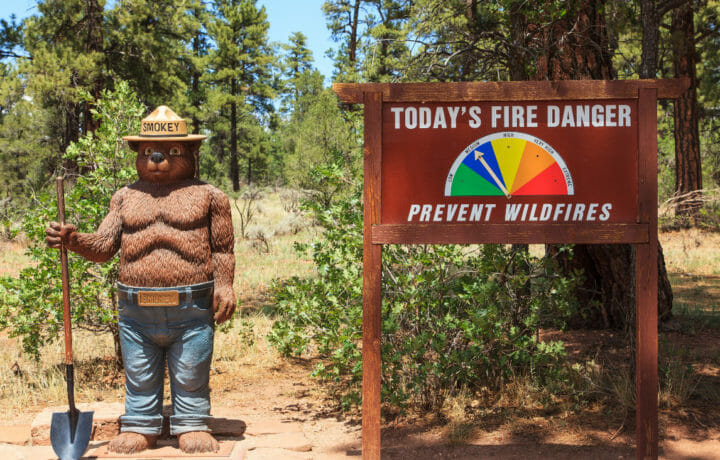Growing up, it seemed like every family vacation was to a national park or forest. The irony is that we never camped, backpacked, or river-rafted; “roughing it” wasn’t exactly my mother’s specialty.
I distinctly remember being bored out of my mind on most of these vacations. My enlightened philosophy at the time was that if you’ve seen one forest, you’ve seen them all (that’s since changed). But in another twist of irony, I also remember desperately wanting to be a National Park Service or Forest Service ranger. My eight-year-old self was enamored with what I’ll call the outdoorsman swagger, the uniforms, and the cool-factor it all exuded.
Somewhere between “park ranger” and “rock star” I eventually settled on law as a career path, and so here we are. It is against that backdrop that I recently had the opportunity to represent an actual ranger in a security clearance denial case. Yes, you read that right: rangers apparently require security clearances. Who knew?
Some folks might point to this seeming absurdity as evidence of what the U.S. Government Accountability Office (GAO) has criticized as “clearance creep.” Okay, that’s actually my term, not GAO’s, but it accurately describes their point: that far too many positions in government are needlessly deemed to require security clearances, which can actually jeopardize national security. The more clearances granted, the more opportunity for spies to infiltrate or classified information to leak.
So, why on earth do rangers need access to classified information? Is Smokey-the-Bear moonlighting as an intelligence officer?
As it turns out, not all rangers require actual security clearances; I’m told it’s only those charged with certain law enforcement duties, although all rangers require a favorable suitability determination for federal service.
By “law enforcement duties” I don’t just mean issuing littering tickets. Some unbelievably crazy stuff goes down in America’s national parks and forests. Biker gangs, narco-traffickers, fleeing fugitives, and fringe paramilitary types all apparently call our unspoiled wilderness home, and as I’ve now learned, rangers are on the front lines – often by themselves and far away from back-up – dealing with them. This means law enforcement rangers have to possess the same degree of good judgment, reliability, and integrity that the government expects of other personnel occupying sensitive, national security positions, and that’s a determination that can only be made following an intensive background investigation.
File this one mentally under “Jeopardy trivia”, or “I learned something new today.” Yes, its random, but it is also an interesting reminder of the value of your security clearance as a ticket into an ever-expanding list of careers that require one. So, guard your clearance jealously against malign influences and temptations. And remember: only you can prevent forest fires.
This article is intended as general information only and should not be construed as legal advice. Consult an attorney regarding your specific situation.




